detail profile yoshimitsu morita
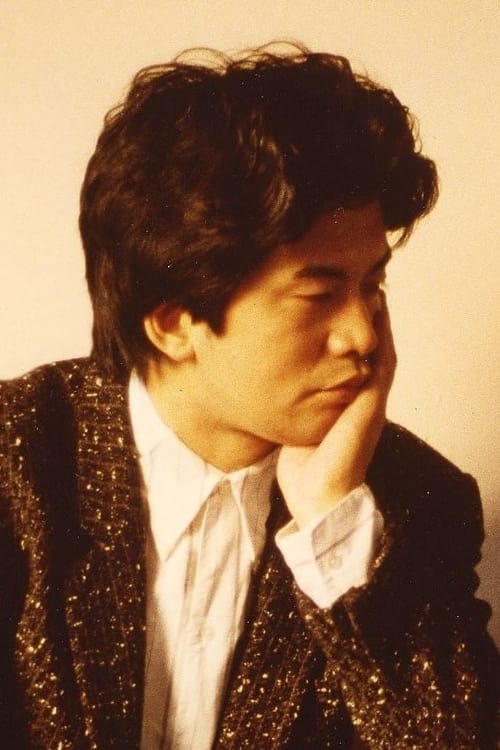
Yoshimitsu Morita
Ёсимицу Морита
atau dikenal sebagai
Riwayat Hidup
Yoshimitsu Morita was a Japanese film director.
Self-taught, first making shorts on 8 mm film during the 1970s, he made his feature film debut with No Yōna Mono (Something Like It, 1981).
In 1983 he won acclaim for his movie Kazoku Gēmu ("The Family Game"), which was voted the best film of the year by Japanese critics in the Kinema Junpo magazine poll.
This black comedy dealt with then-recent changes in the structure of Japanese home life.
It also earned Morita the Directors Guild of Japan New Directors Award.
He also won the award for best director at the 21st Yokohama Film Festival for 39 keihō dai sanjūkyū jō ("Keiho", 2003) and the award for best screenplay at the 18th Yokohama Film Festival for Haru (1996).
Info Pribadi
Peran Yang Di Mainkan Yoshimitsu Morita
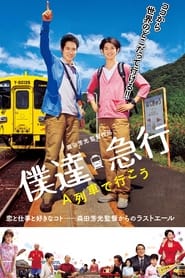 Real estate company employee Komachi and...
Real estate company employee Komachi and...Train Brain Express 2012
Real estate company employee Komachi and steelworks heir Kodama are both train aficionados. Their hobby proves useful for their burgeoning careers, but their romantic fortunes do not go as smoothly. Will the awkward Kodama and the indecisive Komachi find the loves of their lives?
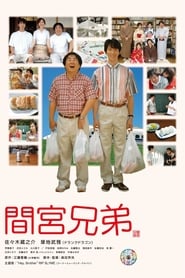 The main characters are the Mamiya...
The main characters are the Mamiya...The Mamiya Brothers 2006
The main characters are the Mamiya brothers who are living together although they are over 30-years-old. Unconcerned with appearance and reputations, they enjoy their life in their own way. The only concern is the lack of girlfriends. One day, however, a change occurs to their mundane lives. The elder brother, Akinobu (Kuranosuke Sasaki), falls in love with a girl at a video shop. The younger brother, Tetsunobu (Muga Tsukaji), scrambles around to aid his brother achieve love and arranges various dates. The elder brother strives to return the effort, but gets the cold shoulder. The two brothers return to their original lives, continuing with their ordinary, but happy days.
 The shock of her fiances sudden...
The shock of her fiances sudden...Umineko - Inseparable 2004
The shock of her fiance's sudden dissolution of their relationship causes university student, Miki, to lose her voice. While recuperating in a hospital in her hometown of Hakodate, she learns of the tragic life of her deceased mother, Kaoru, from her grandmother.
 While searching for his fiancee Ritsuko...
While searching for his fiancee Ritsuko...Crying Out Love in the Center of the World 2004
While searching for his fiancee Ritsuko, Sakutarou rediscovers through flashbacks the void deep within him caused by the events from his high school days.
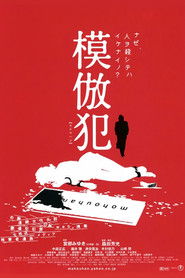 Based on the bestselling novel by...
Based on the bestselling novel by...Copycat Killer 2002
Based on the best-selling novel by Miyuki Miyabe. The title “Mohouhan” means “Copycat”, and it tells the story of a criminal who abducts and kills women, and those who try to catch him. Nakai is cast as a cold-blooded, intelligent and evil guy who uses the media to announce and show his murders live to the public.
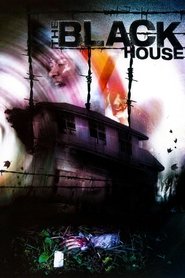 A meek agent at the Showa...
A meek agent at the Showa...The Black House 1999
A meek agent at the Showa Life Insurance company receives a phone call from a customer who says that she's planning to commit suicide and wants to know if her policy will pay out. Concerned about her safety, the agent visits her house only to find that her young son has hanged himself. As he investigates further, more and more people connected with this family start having "accidents," and if he's not careful, he might be next.
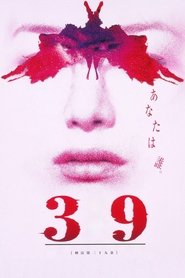 The psychiatric evaluation of a young...
The psychiatric evaluation of a young...Keiho 1999
The psychiatric evaluation of a young actor arrested for a brutal double murder concludes he may be unfit for trial. Further investigation, however, reveals the crime was a well-planned statement against the section of Japan's criminal code granting diminished responsibility to the mentally impaired.
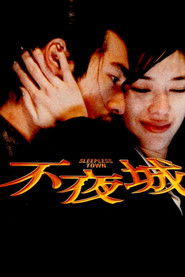 Kenichi is a halfJapanese halfChinese man...
Kenichi is a halfJapanese halfChinese man...Sleepless Town 1998
Kenichi is a half-Japanese, half-Chinese man of the underworld. You can sell him anything except children's organs. His domain is in Kabukicho, a gangland controlled by various Shanghai gangs intent on taking control. His former partner-in-crime, Fu-Chun, is rumored to have returned to Kabukicho, having fled years earlier after killing the number two of gangland boss, Yuan. Yuan wants to get even and attempts to do so by using Kenichi.
 Kuki is a veteran newspaper reporter...
Kuki is a veteran newspaper reporter...Lost Paradise 1997
Kuki is a veteran newspaper reporter who has been shuffled off to a book-development branch and finds escape in an illicit relationship with Rinko. Together they find the passion no longer present in their marriages.
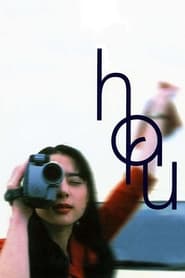 A young Tokyo businessman joins an...
A young Tokyo businessman joins an...Haru 1996
A young Tokyo businessman joins an online movie forum and develops a special bond with one of its members through back and forth e-mails.
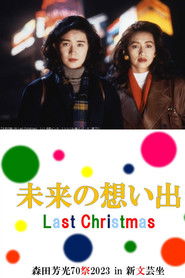 Based on the not quite SciFi...
Based on the not quite SciFi...Future Memories: Last Christmas 1992
Based on the 'not quite Sci-Fi, not quite a Romance' manga by the Fujiko F. Fujio. Yuko dreams of being a best selling children's author, but as an adult she has made little progress. In her depression, she bonds with Ginko, a roadside fortune teller who has had a tragic love life. Both die the next day but appear 10 years before with their memories intact. Will they choose more wisely or be sunk by new unfulfilling choices between career and romance?
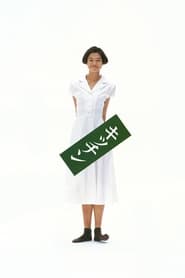 The story centers around Mikage a...
The story centers around Mikage a...Kitchen 1989
The story centers around Mikage, a young woman who loses her parents when young. She grows up in a lonely household with her grandmother who dies when Mikage reaches adulthood. Grief-stricken, she finds solace in the kitchen. Yuichi, a friend of Mikage's deceased grandmother, invites her to live with him and his mother. Then Mikage discovers that Yuichi's mother is actually his cross-dressing father. On the other hand, Mikage realizes that the wealth of gadgetry in Yuichi's kitchen is lovingly detailed.
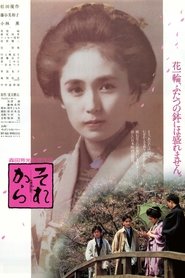 Daisuke is supposed to be out...
Daisuke is supposed to be out...And Then 1985
Daisuke is supposed to be out looking for a respectable job and equally respectable wife. He is 30 years old and devotes his attention to music and literature; his family is wealthy and can support his interests. When his friend Hiraoka returns with his wife Michiyo, problems arise.
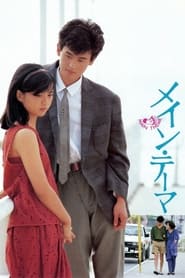 A kindergarten teacher meets a novice...
A kindergarten teacher meets a novice...Main Theme 1984
A kindergarten teacher meets a novice magician and together they travel to another city to find love.
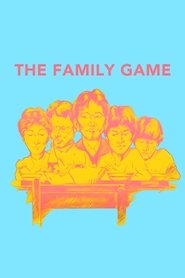 A sendup of the stereotypical Japanese...
A sendup of the stereotypical Japanese...The Family Game 1983
A sendup of the stereotypical Japanese family: dad is a salaryman jerk, unable to relate to anyone; mom is a hopeless housewife; the older son is a moderate academic success; but the younger son is a rebellious goof-off for whom a tutor must be hired. The tutor, played by the prototypical bad boy actor Matsuda Yusaku, proceeds to blow the entire family apart.
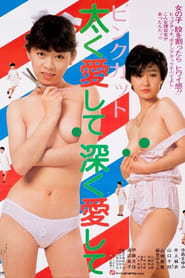 Mayumi and Mai are hair stylists...
Mayumi and Mai are hair stylists...Pink Cut: Love Me Hard, Love Me Deep 1983
Mayumi and Mai are hair stylists who open a Barber shop called The Pink Cut. The place is an immediate success, due mostly to their super-short skirts. When the girls decide to stop wearing underpanties, business goes thru the roof. Eventually Main and Mayumi add special massages and cream rinses to their list of extras. The girls laugh all the way to the bank. Ah, the joys of entrepreneurship!
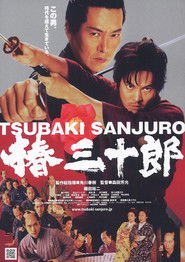 Tsubaki Sanjuro is a remake of...
Tsubaki Sanjuro is a remake of...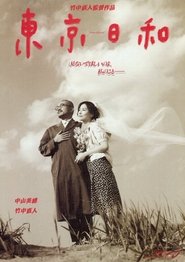 This is a biographical film about...
This is a biographical film about...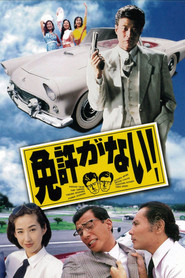 A popular movie star named Hiroshi...
A popular movie star named Hiroshi... A naive delivery boy becomes infatuated...
A naive delivery boy becomes infatuated...